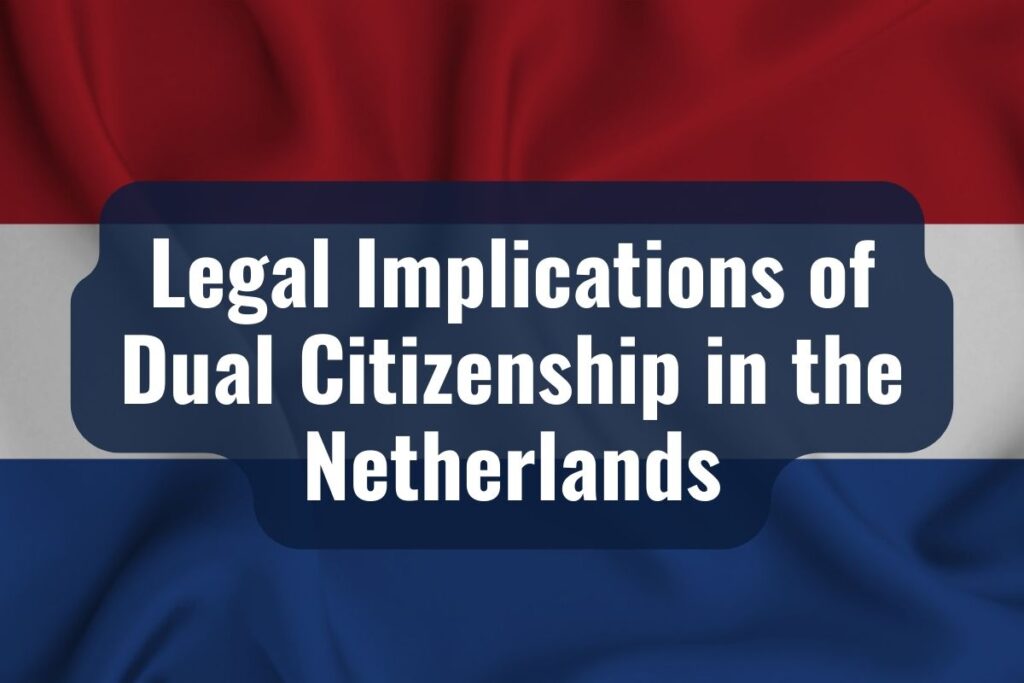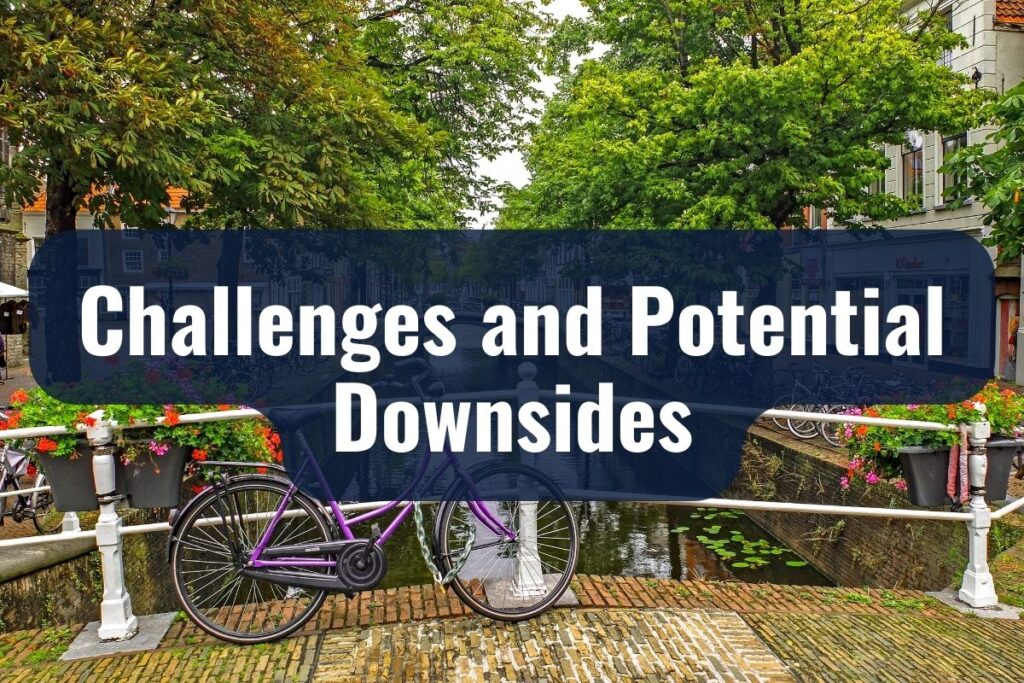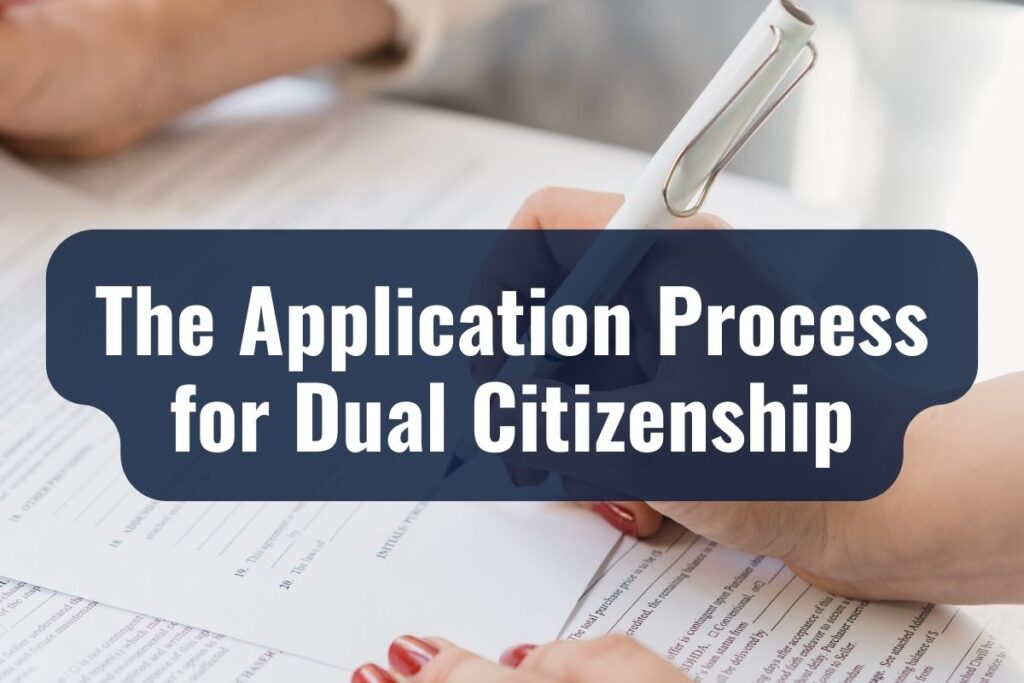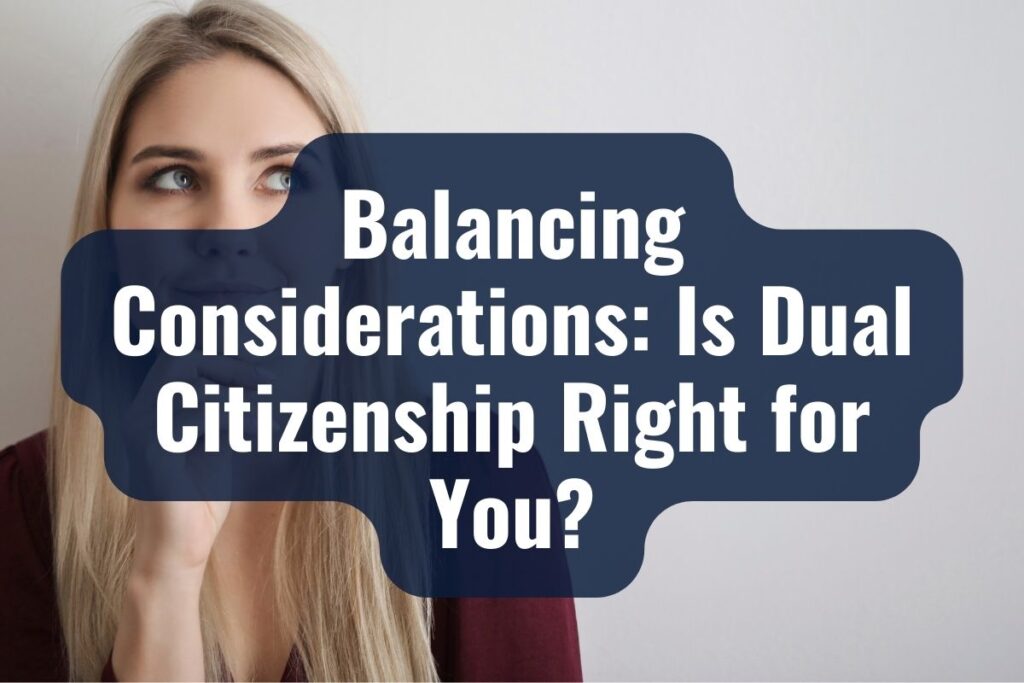The concept of holding citizenship in two countries simultaneously, often termed “dual citizenship,” can be both intriguing and perplexing. This article aims to provide a clear and informative perspective on dual citizenship within the Dutch context, elucidating the legal frameworks, benefits, challenges, and the process one might undertake.
Whether you’re pondering the benefits of maintaining ties to your homeland while embracing the privileges of Dutch citizenship or simply curious about the potential implications, this guide is designed to shed light on the multifaceted realm of dual citizenship in the Netherlands.
Key Takeaways
- Dual citizenship offers a blend of privileges from two nations but also introduces legal complexities.
- The Netherlands does not actively promote dual citizenship, with some exceptions in place.
- The benefits of dual citizenship include increased mobility, access to rights in both countries and cultural enrichment.
- Challenges can range from tax implications and conflicting obligations to emotional dilemmas of allegiance.
- Acquiring dual citizenship in the Netherlands requires careful navigation of eligibility criteria, documentation, and official procedures.
- Deciding on dual citizenship necessitates balancing personal, financial, and emotional considerations.
What is Dual Citizenship?
At its core, dual citizenship, also frequently referred to as dual nationality, means that an individual is recognized as a citizen of two countries simultaneously. This status allows the person to enjoy the rights and privileges of both nations while also being subject to the responsibilities and obligations associated with each.
Let’s break it down a bit:
Dual Nationality vs. Dual Citizenship
These terms are often used interchangeably, but they possess subtle differences. Dual nationality typically arises when a person is born in one country and, due to parentage or descent, automatically gains the nationality of another country.
In contrast, dual citizenship more directly implies that a person has gone through the legal processes to be recognized as a citizen in two different countries.
Rights and Responsibilities
With dual citizenship, an individual can vote in both countries, work without needing a permit, access social services, and even run for public office (if allowed by the respective country’s regulations). Concurrently, they must also uphold the duties and responsibilities of a citizen in both countries, such as paying taxes or adhering to residency requirements.
Legal Implications of Dual Citizenship in the Netherlands

Dual citizenship undeniably opens up a world of opportunities. However, it also brings forth a range of legal considerations, especially within the Dutch framework.
The Netherlands, while being a modern and forward-thinking nation, maintains a somewhat conservative stance on the subject of dual citizenship. Foreigners need to be well-versed in these intricacies to make informed decisions.
Current Dutch Laws
As a general rule, the Netherlands does not actively promote dual citizenship. The Dutch Nationality Act contains provisions that can lead to the loss of Dutch nationality if someone acquires another citizenship. This is based on the idea that, ideally, allegiances should be clear and uncomplicated.
Exceptions and Allowances
There are, however, certain circumstances under which dual citizenship is permissible:
- If a person obtains another nationality at birth alongside Dutch citizenship
- If a Dutch citizen is married to a foreign national and acquires that nationality
- If it is impossible or exceptionally challenging to renounce one’s original nationality
- Other specific cases which may be outlined in bilateral agreements or special situations
Rights and Obligations
Dual citizens, when in the Netherlands, are treated as Dutch citizens. This means they’re entitled to all the rights of a Dutch national but must adhere to all Dutch laws and regulations without any special exemptions. Outside of the Netherlands, their rights and obligations may vary based on their other citizenship.
Loss of Dutch Nationality
It’s important to note that Dutch nationality can be lost under specific conditions, especially for dual citizenship holders. For instance, if a dual citizen lives outside the EU for an extended period (generally 10 years or more) and doesn’t renew their Dutch passport in time, they risk losing their Dutch citizenship.
Benefits of Dual Citizenship
Embracing dual citizenship is much like opening doors to two worlds, both laden with unique advantages. While the legalities surrounding this status can seem daunting, the array of benefits dual citizenship offers can be compelling for many individuals. Let’s delve into the myriad of opportunities and privileges that come with being a citizen of two nations.
| Benefit | Description |
| Maintaining Cultural Ties | Keep an intimate connection to one’s roots and enjoy a sense of belonging |
| Access to Rights & Privileges | Benefit from healthcare, education, and social services from both countries |
| Increased Mobility | Enjoy visa-free travel and easier visa processes depending on the countries of citizenship |
| Diverse Opportunities | Wider options for work, travel, and education in both nations |
| Security and Stability | A safety net during economic, political, or environmental challenges |
| Cultural Enrichment | Experience the traditions, languages, and lifestyles of both nations, enriching personal identity |
Maintaining Ties to One’s Home Country
Dual citizenship allows individuals to keep an intimate connection with their roots. This bond can be emotional, offering a sense of belonging and identity, but also practical. It provides the flexibility to live, work, or study in either country without cumbersome bureaucratic hurdles.
Access to Two Sets of Rights and Privileges
As a dual citizen, one gains access to the combined benefits of both countries. This can include healthcare, education, social services, and more. For example, a dual citizen in the Netherlands and another EU country might enjoy rights both as a Dutch national and as a citizen of another European Union member state.
Increased Mobility
Traveling becomes considerably more straightforward for dual citizens. Depending on the countries of citizenship, one might benefit from visa-free travel or easier visa processes for a vast number of nations. It’s not just about tourism; it can also be about business opportunities and professional mobility.
Opportunities for Work, Travel, and Education
Holding dual citizenship often provides broader options when it comes to selecting where to study, work, or establish a business. Institutions or employers in both countries might be more accessible, and opportunities for scholarships or grants might multiply.
Security and Stability
In an unpredictable global scenario, having citizenship in two countries can serve as a safety net. Should economic, political, or environmental challenges arise in one country, the individual has the option to relocate to the other, provided they meet the necessary residence criteria.
Cultural Enrichment
On a personal note, dual citizenship enriches one’s life with a blend of two cultures. The traditions, festivals, languages, and lifestyles of both nations become an integral part of the dual citizen’s identity, making their life experience richer and more diverse.
Challenges and Potential Downsides

While dual citizenship paints a picture brimming with opportunities, it isn’t devoid of challenges. Just as two nations bring double the advantages, they can also introduce complexities that are essential to understand. Here’s a look at some potential pitfalls and challenges associated with holding dual citizenship.
Possible Tax Implications
One of the foremost concerns for dual citizens revolves around taxation. Some countries tax their citizens based on global income, while others do so based on residence. Being a dual citizen might mean navigating the intricate tax laws of both countries and in some unfortunate cases, this could result in double taxation. However, many countries have treaties in place to prevent such scenarios, but it’s vital to be well-informed and possibly consult a tax professional.
Conflicting National Obligations
Holding citizenship in two countries can sometimes lead to conflicting obligations. A classic example is mandatory military service, which is a requirement in some nations. A dual citizen might find themselves in a conundrum if both countries demand such service.
Potential Issues with Third Countries
There could be instances where a third country may not recognize dual citizenship. This can complicate matters if, for example, a person needs consular assistance abroad. The third country might only recognize one of the citizenships, possibly not the one most beneficial to the individual in that situation.
Renunciation Difficulties
If a dual citizen later decides that they’d prefer to hold only one nationality, renouncing the other can be a complicated and sometimes costly process. Some countries make it challenging to give up citizenship, requiring extensive documentation or even exit taxes.
Cultural and Emotional Challenges
On a personal level, juggling allegiances to two nations can be emotionally taxing. Dual citizens might sometimes feel torn between two cultures, struggling to determine where they truly belong. This can be particularly true during significant political or social events that affect both nations.
Increased Bureaucracy
Dual citizenship can often mean double the paperwork. Renewing passports, voting in elections, or merely keeping up with the administrative requirements
The Application Process for Dual Citizenship

Embarking on the journey to acquire dual citizenship is a significant step, one that is often punctuated by a series of administrative procedures, document submissions, and legal formalities. For those considering this path in the Netherlands, a clear understanding of the application process can be a beacon, guiding them through the intricacies of the system.
Eligibility Criteria
Before delving into the process, it’s crucial to ascertain one’s eligibility. As previously discussed, the Netherlands generally does not actively encourage dual citizenship.
However, there are exceptions, such as obtaining another nationality at birth or through marriage to a foreign national. It’s essential to first ensure that you fit within the parameters that the Dutch authorities have set.
Documentation and Requirements
Acquiring dual citizenship typically necessitates a comprehensive list of documents. These can include:
- Birth certificates from both countries
- Proof of residence
- Marriage or partnership certificates (if applicable)
- Documents showing the inability to renounce the original nationality (where relevant)
- Other country-specific requirements
Application Submission
Once all the documents are collated, the next step is to submit the application to the appropriate Dutch authority. Depending on the specific circumstances, this could be a municipality, the Immigration and Naturalisation Service (IND), or a Dutch embassy or consulate if you’re abroad.
Interview and Assessment
Post-submission, applicants might be called for an interview or an assessment. This step allows the authorities to validate the authenticity of the documents and understand the applicant’s motivations and ties to the Netherlands.
Wait Period
Like many bureaucratic processes, the application for dual citizenship involves a waiting period. The duration can vary based on individual cases and the volume of applications the authorities are handling.
Decision and Next Steps
Once the assessment phase concludes, the authorities will notify the applicant of their decision. If approved, there might be further steps, such as taking an oath of allegiance to the Kingdom of the Netherlands.
Balancing Considerations: Is Dual Citizenship Right for You?

As with any significant life decision, acquiring dual citizenship demands thoughtful consideration. While the allure of dual rights and privileges is undeniable, it comes intertwined with responsibilities and potential complexities.
As foreigners in the Netherlands contemplate this decision, it’s crucial to weigh the pros and cons based on one’s unique circumstances and aspirations.
Personal Circumstances
Reflect on your current situation and future goals. Are you planning to reside in the Netherlands long-term? Do you envision frequent travels or engagements with your home country? How do your career aspirations align with the prospect of dual citizenship?
Family Considerations
For many, family plays a pivotal role in the decision-making process. If you have or plan to have a family, think about the implications for them. Would dual citizenship offer them better educational or professional opportunities? Or could it introduce complexities in terms of obligations to both countries?
Financial Implications
As discussed, dual citizenship can sometimes introduce tax complexities. Understanding the potential financial benefits and challenges can be vital. It might be worth consulting with a financial advisor or tax professional to gain a clearer perspective.
Cultural and Emotional Resonance
Beyond the tangible benefits, ponder the emotional and cultural implications. How do you feel about having allegiances to two nations? Does the idea resonate with your sense of identity, or does it introduce feelings of dissonance?
Legal and Bureaucratic Aspects
While the benefits of dual citizenship are manifold, the journey to acquire it can be strewn with bureaucratic hurdles. Are you prepared for the potential paperwork, wait times, and legalities involved?
Stay Updated
Laws, policies, and international relations evolve. What might be the stance of the Netherlands on dual citizenship today could shift in the future. Staying informed and updated on these changes is paramount.
The tapestry of dual citizenship is woven with threads of opportunity, responsibility, and identity. It offers a unique vantage point, a space where two nations converge, allowing individuals to harness the strengths and privileges of both. For foreigners in the Netherlands, this topic isn’t just a matter of legal status; it’s about crafting a life that’s enriched by the best of both worlds.
Yet, as with any significant choice, it demands introspection. Every individual’s relationship with the idea of dual citizenship will be distinct, and shaped by their experiences, aspirations, and circumstances. While the allure of two passports, enhanced mobility, and extended rights is compelling, it’s equally essential to recognize the responsibilities and potential challenges that accompany this status.
To those contemplating this journey in the Netherlands, let your decision be informed by knowledge, guided by your vision, and underpinned by a deep understanding of what dual citizenship means to you. In the dance between two cultures, two sets of laws, and two identities, may you find a rhythm that resonates with your unique story.